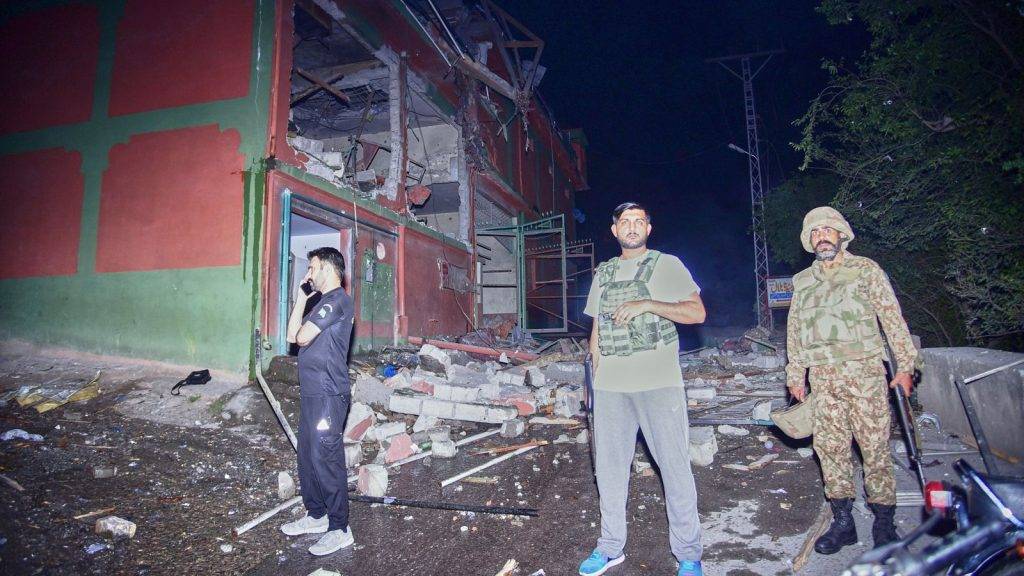Cliff Notes – Missile attack on Pakistan comes after mood of ‘retribution’ and ‘punishment’ in India
- India’s missile strikes on Pakistan-controlled territory were prompted by a deadly attack on Indian tourists in Kashmir, which resulted in 26 fatalities.
- The Indian government, with approval from Prime Minister Modi, seeks to punish those believed to be linked to Pakistan-based terrorist groups.
- Ongoing military drills and heightened tensions indicate a potential escalation in conflict, reminiscent of past incidents between the two nuclear-armed nations.
Missile attack on Pakistan comes after mood of ‘retribution’ and ‘punishment’ in India
India’s attack on Pakistan-controlled territory comes amid a mounting feeling that “retribution” and “punishment” were needed for a deadly attack a fortnight ago, says Sky’s India reporter Neville Lazarus.
At least 26 people, most of whom were Indian tourists, were shot dead by gunmen at a beauty spot near the resort town of Pahalgam in the Indian-controlled part of Kashmir on 22 April.
“Earlier tourists were always spared – but this time they were specifically being targeted and since then there’s been an uproar in India,” says Lazarus.
“There has been a mood for some sort of punishment, retribution for these horrendous attacks that took place.”
That call has now been acted on, with Pakistan security officials saying early on Wednesday that India had fired missiles across the border.
Locations in Pakistan-administered Kashmir and in the eastern Punjab province were hit, according to officials.
Two Indian jets were also shot down, state-run Pakistan Television reported, quoting officials.
Sky’s India reporter says the call to hit back after the April attack had received support from the very top.
“Prime Minister Modi said very publicly – not once but several times – that India will punish the perpetrators of this attack and also the backers,” says Lazarus.
“They believe there has been a linkage with Pakistan-based terrorist groups.”
Sources
India fires missile barrage into Pakistan as war fears surge – Al Jazeera
Asian airlines re-route, cancel flights due to India-Pakistan fighting – Reuters
Experts react: India just launched airstrikes against Pakistan. What’s next? – Atlantic Council


